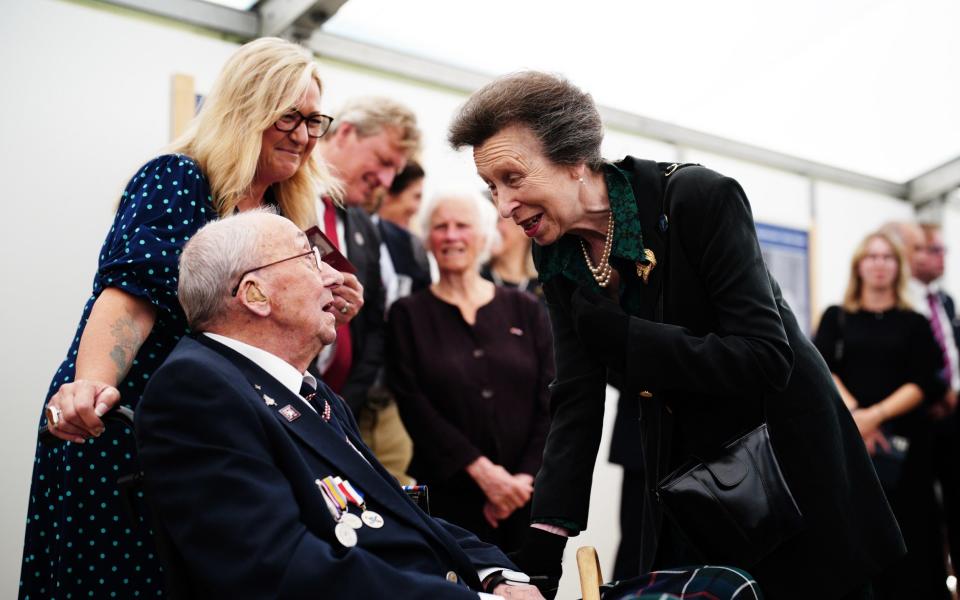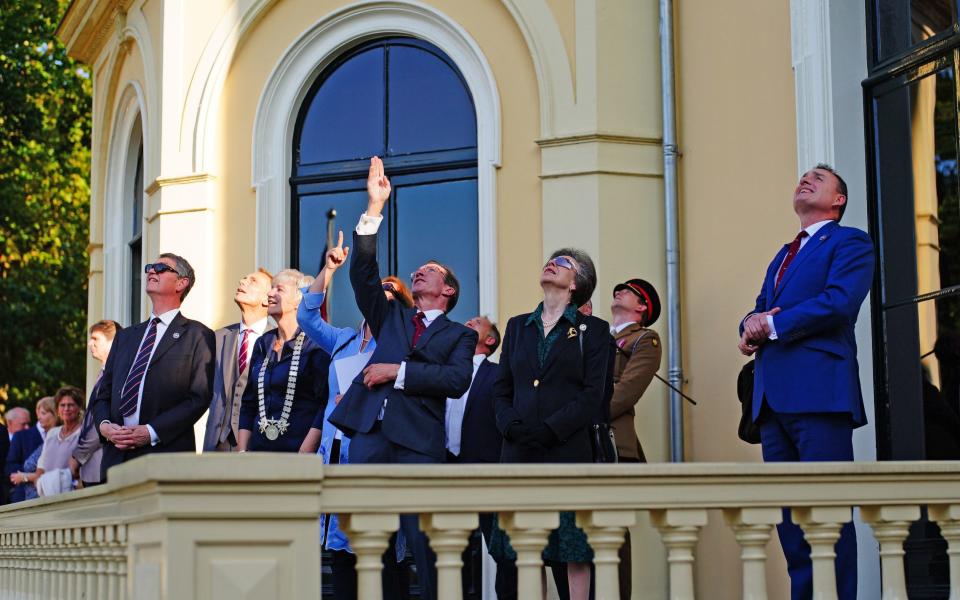King pays tribute to ‘heroism and sacrifice’ to mark 80 years since Arnhem

The King has said the “heroism and sacrifice made by so many in the pursuit of peace” will never be forgotten as the 80th anniversary of a famous Second World War operation was commemorated.
The King’s words were spoken by the Princess Royal, representing the King at events this weekend marking the efforts of troops who in 1944 fought in Operation Market Garden, with the bold aim of ending the war that year.
The Princess, joined by her husband Vice Admiral Sir Tim Laurence, delivered her brother’s speech at a reception staged at the Airborne Museum Hartenstein in Oosterbeek, the Netherlands.
It is a former hotel that served as the headquarters of the British 1st Airborne Division during the Battle of Arnhem, part of the operation that aimed to push through the Netherlands and into Germany just a few months after the D-Day landings.

The Princess said on behalf of the King: “Eighty years ago, on this very weekend, Operation Market Garden was under way in this region of the Netherlands.
“An ambitious joint airborne and ground forces operation designed to seize crucial bridges to enable the advance into Germany, its ultimate aim was to end the war within a matter of months.
“The friendships made during those difficult days of September 1944 between the Dutch and their liberators continued after the war.
“I saw this for myself five years ago when, as Colonel in Chief of the Parachute Regiment, I attended the 75th anniversary commemorations.”
The Princess met Geoff Roberts, 99, believed to be the only British soldier to travel to Arnhem for the commemorations this year.
Mr Roberts flew by glider into Arnhem during Operation Market Garden but was captured as the Allies retreated after their efforts. Immortalised in the film A Bridge Too Far, the Allies were thwarted by strong resistance from Nazi troops, and he spent the rest of the war in a German prisoner of war camp.

The Princess continued the King’s speech, saying: “Tragically, despite the endless courage of all those who served in an operation whose renown echoes through the generations, the Netherlands had one more terrible winter to suffer before liberation finally arrived.
“Today, on this 80th anniversary, it is with a deep sense of gratitude and humility that we remember all those in the British, Allied and Commonwealth forces who served and died fighting for our freedom.
“Let us also remember those magnificently courageous members of the Dutch resistance and gallant civilians who endured so much during the Second World War.
“We will never forget the heroism and sacrifice made by so many in the pursuit of peace and liberation. My wife joins me in sending the warmest possible good wishes to all those taking part in this weekend of commemoration.”
On Sunday, the Princess, in her role as president of the Commonwealth War Graves Commission, will attend the annual service marking the operation’s 80th anniversary at Oosterbeek Airborne Cemetery.
She will join around a thousand guests and will read a lesson and lay a wreath at the foot of the Cross of Sacrifice.
Earlier, paratroopers from eight Nato member countries, including the UK, the USA, Portugal and Spain, parachuted from 12 aircraft into Ginkel Heath, a nature reserve near the Dutch town of Ede.
Some 700 paratroopers took part in the jump, including the Red Devils, the British Army’s freefall parachute display team, as part of the commemoration of the Battle of Arnhem.
Turned into defensive battle
Among those to parachute into the occupied Netherlands were 1,900 allied airborne soldiers from Britain’s 4th Parachute Brigade.
The plan involved seizing key bridges with a combination of airborne and land forces.
But the airborne forces’ landing zones were around nine miles from the bridge at Arnhem, losing them the element of surprise and giving the German troops time to build blockades.
While the operation succeeded in capturing the Dutch cities of Eindhoven and Nijmegen, it failed in its key objective: securing the bridge over the Rhine at Arnhem.
A defensive battle was fought, which saw nine days of prolonged street fighting, until the order to withdraw was given on Sept 25.
More than 8,000 British soldiers were killed, missing or captured in the offensive.


